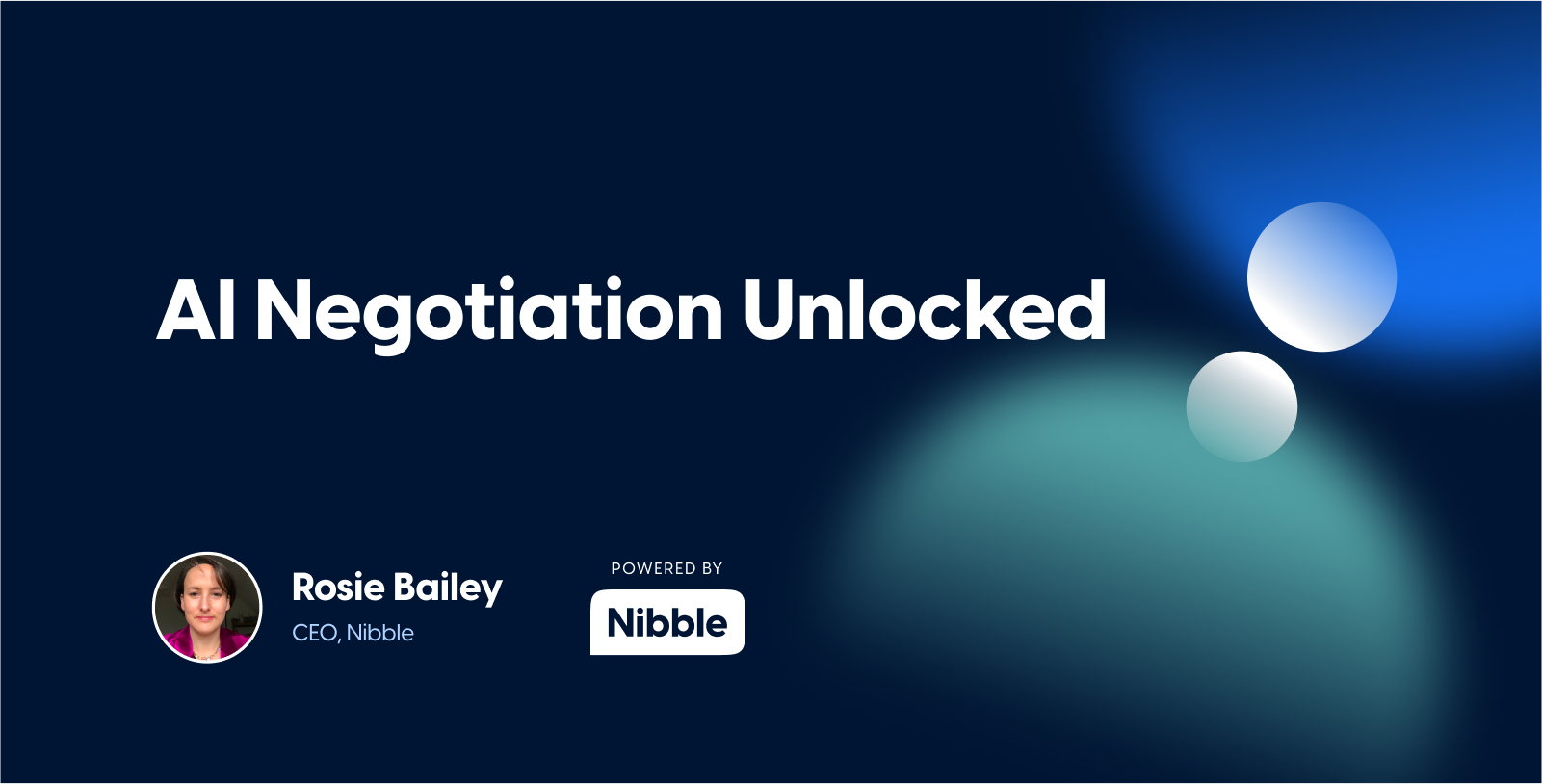
For procurement leaders, time and talent are at a premium. Your category managers and buyers are skilled negotiators — yet their days are consumed by endless email threads and chasing small contract renewals.
The administrative load in modern procurement can be overwhelming, leaving little time for strategic work. Enter AI negotiation solutions. By deploying autonomous negotiation agents to handle repetitive and time-consuming bargaining, companies are boosting team efficiency and productivity to new heights. Gartner analysts predict that within a few years, half of organizations will use AI-driven tools to support supplier negotiations, and procurement leaders anticipate a more than 20% productivity uptick from these technologies. Let’s explore how AI negotiation acts as a force multiplier for your procurement team.
Without AI Negotiation: The Bottleneck of Traditional Negotiations
Consider how negotiations typically unfold today: a buyer emails a supplier to request pricing or contract changes, waits days for a reply, schedules meetings, and goes through multiple rounds of back-and-forth. A single simple negotiation might stretch over weeks. Multiply this by hundreds of suppliers and it’s easy to see why procurement teams are stretched thin. There simply aren’t enough hours in the day for humans to individually negotiate every contract or purchase – so teams triage, focusing on the biggest deals and firefighting the urgent issues.
This leaves a swath of smaller negotiations either ignored, or handled hastily with one-size-fits-all offers. Procurement teams are “buried in work that could, and should, be automated,” as one industry report notes. The inefficiency isn’t just lost time; it’s lost opportunity to optimize outcomes and to concentrate on higher-value activities.
Moreover, repetitive negotiations don’t fully leverage your team’s talent. Highly skilled professionals end up copy-pasting emails and nudging suppliers for updates instead of analyzing markets or crafting category strategies. It’s demotivating and inefficient. In an era where procurement is expected to do more with less – often managing growing spend with leaner teams – this model just doesn’t scale.
Autonomous Negotiation Agents to Improve Efficiency
AI negotiation platforms change the game by offloading the repetitive bargaining tasks to a digital agent. Think of an autonomous negotiation agent as a tireless virtual team member who can initiate and carry out negotiations based on parameters you set. Need to renew 300 maintenance contracts with a small price decrease? Instead of your team grinding through each one, the AI agent can reach out to every supplier simultaneously with a customized proposal, haggle within predefined limits, and even close the deal – all in a fraction of the time.
These AI agents operate via intuitive chat interfaces or email, conversing with suppliers in natural language. They can clarify terms, counter offers, and even provide rationale for their positions using data you’ve fed them (like market benchmarks or target prices).
Importantly, the AI negotiator knows when to escalate. If a supplier’s counteroffer falls outside of guidelines or they have an unusual request, the system can flag it for a human colleague to review – meaning you maintain control over exceptions. But the vast majority of straightforward negotiations can be handled start to finish without human intervention. One enterprise found that by using an AI negotiation tool for contract renewals, it freed up hundreds of hours for the procurement team that would have otherwise been spent on back-and-forth communications.
AI Negotiation Frees Your Team for Strategic Work
The immediate efficiency gain from autonomous negotiation is clear – but the knock-on benefit is even more exciting: your team gets to refocus on what truly matters. AI handles the tedious “transactional” negotiations so that your human experts can concentrate on strategy, complex deals, and supplier relationships.
For a CPO, this means you’re effectively increasing your team’s capacity without adding headcount. The bandwidth that opens up can be redirected to strategic sourcing projects, supplier development, risk management, or simply more thorough preparation and analysis for the high-value negotiations that do require a personal touch.
Additionally, having an AI agent cover the baseline negotiations ensures nothing slips through the cracks. Junior staff aren’t overburdened trying to negotiate 50 low-value contracts at once, and senior staff aren’t being pulled into clerical tasks. This leads to better outcomes all around: important negotiations get full attention from your team, while the routine ones are still executed diligently by the AI. Many organizations also report improved cycle times – deals get closed faster.
Rapid Deployment and Scalability with AI Negotiation
One of the advantages of today’s AI negotiation solutions is that they don’t require massive IT projects to get started. You can often pilot an autonomous negotiation agent in a matter of weeks, using a defined subset of suppliers or a specific category to test the waters. There’s no need to rip out existing procurement systems – the AI can operate alongside, initiating negotiations via email links or a portal with minimal integration. This means the efficiency benefits can be realized quickly. Many use cases have been piloted and shown results in under a quarter, making it a fast win for procurement leadership.
Scalability is built-in. Once the model is proven in one area (say, standardizing payment terms with a set of vendors), it’s easy to extend the agent to new categories, regions, or contract types.
Efficiency in Action with AI Negotiation
Leading CPOs are beginning to view AI negotiation not as a futuristic nice-to-have, but as a practical solution to current workload challenges. One study found teams that leverage procurement technology effectively can manage 27% more spend with the same resources. We are entering an era where “doing more with less” becomes feasible – not by overworking people, but by offloading work to AI.
Efficiency is the name of the game for today’s procurement organizations, and autonomous negotiation is quickly becoming an essential tool to achieve it. By automating routine negotiations, AI negotiation agents dramatically increase your team’s capacity, shorten cycle times, and let your talent focus on strategic initiatives. Early adopters are already seeing substantial productivity boosts, and industry experts forecast AI-driven negotiation will soon be standard practice.
Find out more from Nibble’s experience negotiating 100,000 times a month here.
Interested in Nibble?
